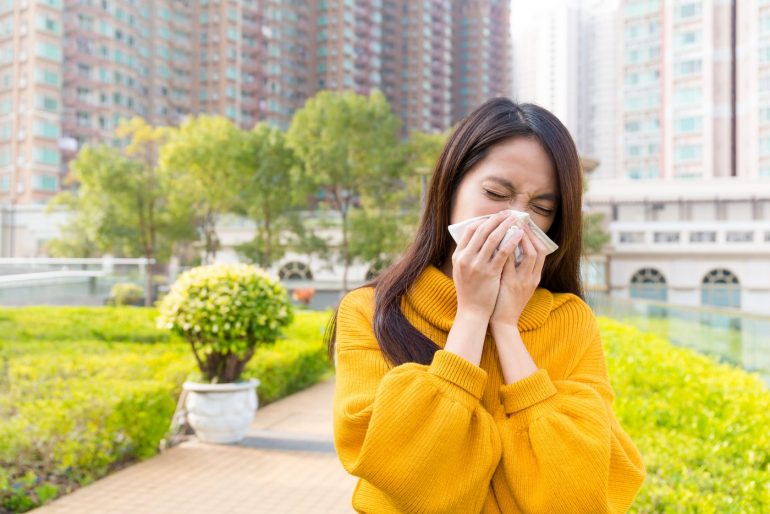Seasonal allergies and their attendant miseries come around almost every season — and some experts believe it’s getting worse as weather patterns change across the country and around the world.
So once you start sniffling and sneezing, take action. “Don’t wait until you’re miserable to start devising a treatment strategy,” says University of Wisconsin School of Medicine allergist Mark Moss, MD.
Practical precautions to minimize symptoms of seasonal allergies
If you suffer from seasonal allergies, Dr Moss says there are a number of practical precautions you can take as the weather warms to help minimize the severity of your symptoms:
1. Keep your windows closed at night and, if possible, use air conditioning.
2. Try to stay indoors when the pollen or mold levels are reported to be high. You can check the National Allergy Bureau Pollen Counts on the American Academy of Allergy, Asthma, and Immunology (AAAAI) website, or at Pollen.com.
3. Wear a pollen face mask if long periods of exposure are unavoidable.
4. Avoid hanging sheets or clothes outside to dry.
5. Consider taking a vacation during the height of the pollen season to a more pollen-free area, such as the beach or sea.
6. When traveling by car, keep your windows closed.
7. Use a Neti Pot to flush irritants from your nasal passages.
An allergy-stress connection?
Although stress doesn’t cause allergies, but easing your mind might mean less allergy flare-ups this spring. According to a study published in the April 2014 issue of Annals of Allergy, Asthma & Immunology, allergy sufferers with persistent stress experience more allergy flares.
“Stress can cause several negative effects on the body, including causing more symptoms for allergy sufferers,” said allergist Amber Patterson, MD, lead study author. “Our study also found those with more frequent allergy flares also have a greater negative mood, which may be leading to these flares.”
Researchers from The Ohio State University analyzed 179 patients for 12 weeks. Thirty-nine percent had more than one allergy flare. This group had higher stress than the group without allergy symptoms. Of this group, 64 percent had more than four flares over two 14-day periods.
While there were no significant findings between allergy flares and stress on the same day, a number of sufferers reported allergy flares within days of increased daily stress.
“Symptoms, such as sneezing, runny nose and watery eyes can cause added stress for allergy sufferers, and may even be the root of stress for some,” says Dr Patterson. “While alleviating stress won’t cure allergies, it may help decrease episodes of intense symptoms.”
When prevention strategies for seasonal allergies aren’t enough
So, what if these precautions aren’t enough to improve your symptoms? According to Dr Moss, people with more difficult-to-treat allergies will benefit from seeing an allergist that can help identify their specific allergy triggers and develop a comprehensive treatment plan.
An initial visit with an allergist will likely include an analysis of your symptoms, a physical exam, an environmental evaluation, as well as a skin test/allergy test to determine your specific allergens.

The skin test is a routine procedure during which trace amounts of various allergens are applied to tiny scratches made on the surface of your skin. Positive reactions will result in a small itchy bump that usually diminishes over the course of a few hours.
Once the allergist identifies the allergens that are causing your symptoms, a treatment plan can be recommended. These typically include the following strategies:
Prevention education. Completely avoiding allergens is not always possible, but an allergist can suggest ways to decrease your exposure.
Medication. There are a number of effective medications, both over-the-counter and prescription strength,that can effectively manage allergy symptoms.
Immunotherapy (allergy shots). Injections are typically given every week or two, with each shot becoming increasingly stronger. In most cases, the allergy problems become less severe over time.
Dr Moss also strongly encourages anybody with diagnosed asthma, or even those who suspect they may have asthma, to seek medical management for seasonal allergies.
“Seasonal allergies can exacerbate asthma symptoms in some patients, leading to potentially serious situations that require immediate medical attention,” Dr Moss says. “It’s critical that these patients be seen early enough to develop strategies that will help manage both their asthma and their allergies.”








